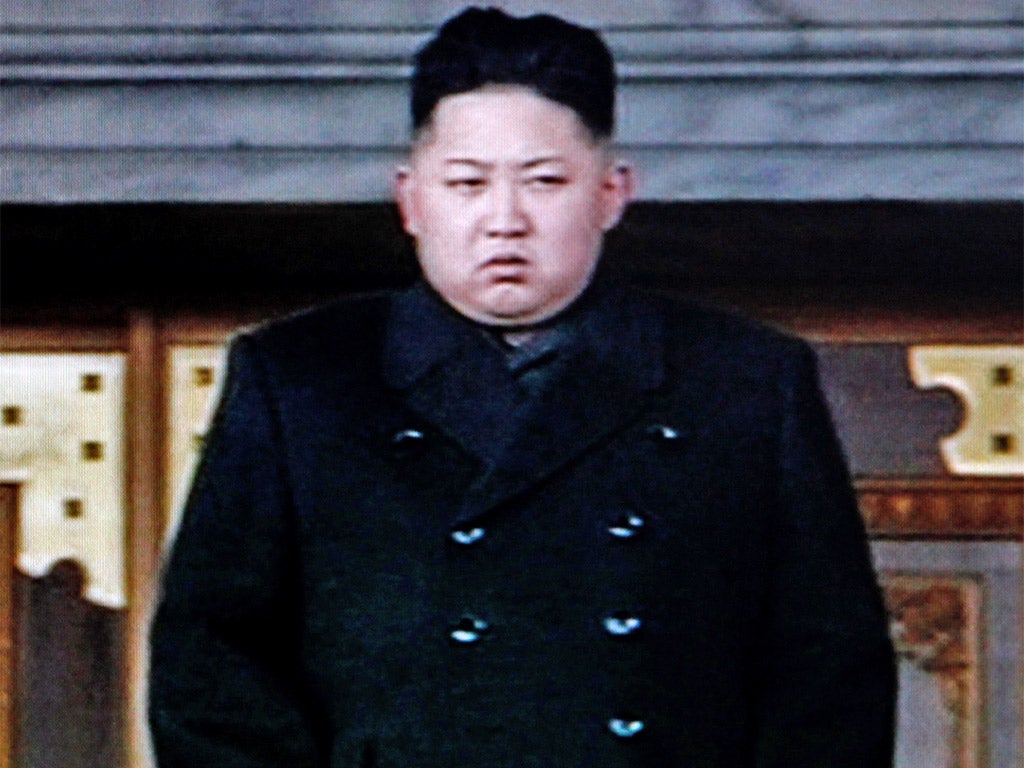New leader stays silent as world waits for sign of Kim 'charisma'
Will North Korea's young leader stick to his father's strongman style or be open to negotiation?

North Korea's fledgling new leader, Kim Jong-un, bowed low before thousands of mourners massed in central Pyongyang yesterday, but did not utter a word on the first day of his rule as the third-generation heir to the dynasty founded by Kim Il-sung.
It was the last day of mourning for Kim Jong-un's father, Kim Jong-il, and an opportunity to impress on the isolated nation that he was now the figure to whom citizens must show the same total loyalty. While Kim Jong-un, aged 28 or 29, remained stolidly silent, the octogenarian titular head of state, Kim Yong-nam, extolled his virtues as "supreme leader of the party, the armed forces and the people".
Kim Jong-un's silence came as no surprise to observers who noted that Kim Jong-il – after inheriting power from his father Kim Il-sung in 1994 – did not appear publicly for at least six months. In subsequent years, he uttered only a few brief phrases in public.
"It's to keep his charisma," said Kim Bum-soo, editor of a conservative magazine in South Korea, explaining the absence of oratory on the part of the father and son. Instead, the aging senior officials and generals ranged alongside him on the balcony high above the square did the talking.
Kim Yong-nam led the speech-making, urging North Koreans to build "a thriving socialist nation" by "holding Kim Jong-un in high esteem". As leader, he said, the young general would "transform the sorrow of the death of hisfather into strength and courage one thousand times greater".
The speeches came a day after a funeral procession in which Kim Jong-un was shown on state TV walking beside the hearse bearing his father's flag-draped coffin, as thousands of wailing North Koreans put on an extraordinary display of synchronised mourning for the man they knew as their "Dear Leader".
Now the question is what sort of leader Kim Jong-un will prove to be – and exactly how much influence his uncle Jang Song-thaek, married to Kim Jong-il's sister, will wield. Mr Jang was right behind him walking beside the hearse, and again in the line-up on the balcony overlooking Kim Il-sung square yesterday.
"Most people support the theory that Kim Jong-un will settle down successfully," said Kim Tae-woo, president of the Korea Institute of National Unification. "He is of royal pedigree" – an allusion to his inheritance of the dynasty founded by Kim Il-sung – "and therefore he has a kind of legitimacy."
Speculation in the North's arch foe, South Korea, tends to focus on whether Kim Jong-un will assert himself as a strongman or adopt a conciliatory policy toward his people as well as Seoul and Washington.
"There's no other option for him but to be more co-operative with the outside world," said Paik Hak-soon, senior fellow at the Sejong Institute. In the quest for food aid from South Korea and the US, both of which stopped shipments of food in 2008, Mr Paik predicts, Kim Jong-un will be open to negotiations on suspending the nuclear weapons programme that was his father's most obvious legacy.
Mr Paik acknowledges, however, that North Korea does not want to "to appear weak and bow to pressure", particularly in view of the power of the generals with whom Kim Jong-un might eventually come into conflict.
"If he goes the wrong way, they'll push him back," said Tim Peters, a missionary who works with refugees from the North. "Word is he was more harsh than his father when he was taking over security services."
Join our commenting forum
Join thought-provoking conversations, follow other Independent readers and see their replies
Comments
Bookmark popover
Removed from bookmarks